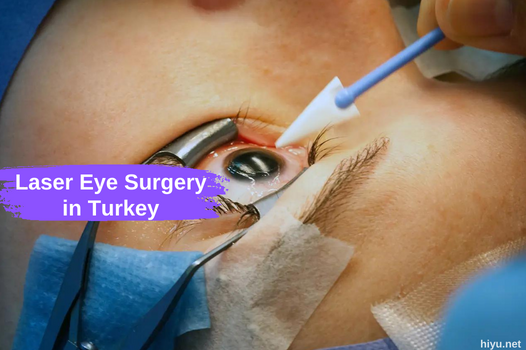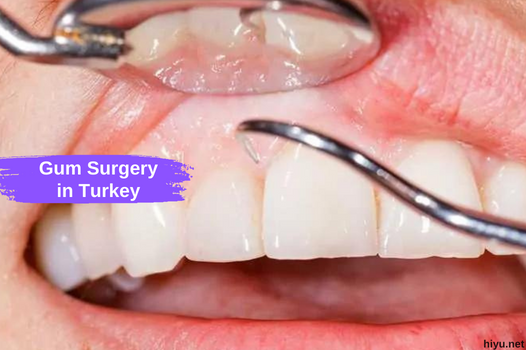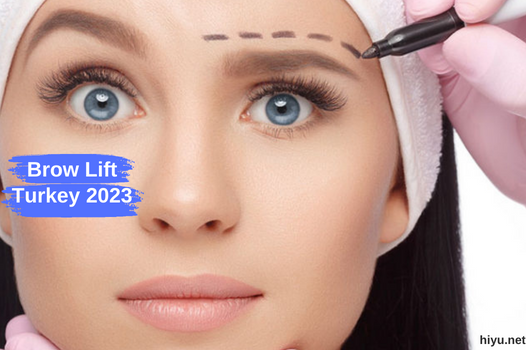Cataract Surgery
Understanding Cataract Surgery
Cataract surgery is a common procedure that aims to remove the cloudy lens of the eye, known as a cataract, and replace it with an artificial lens. This surgical intervention is typically performed when the cataract starts to affect a person's vision and quality of life. Cataracts are most commonly associated with aging, but they can also be caused by factors such as genetics, trauma to the eye, or certain medical conditions like diabetes.
During cataract surgery, the surgeon makes a small incision in the eye and uses specialized tools to break up and remove the cloudy lens. This process is called phacoemulsification. Once the cataract is removed, an intraocular lens (IOL) is implanted in its place. The IOL helps to restore clear vision by focusing light onto the retina at the back of the eye.
Cataract surgery is typically performed on an outpatient basis, meaning that patients can go home on the same day as their procedure. The surgery itself usually takes only about 15-30 minutes per eye.
It's important to note that cataract surgery is generally considered safe and highly effective in improving vision. However, as with any surgical procedure, there are potential risks and complications involved. It is essential for individuals considering cataract surgery to have a thorough discussion with their ophthalmologist or eye surgeon to understand these risks and make an informed decision about their treatment options.
In Turkey, cataract surgery has become increasingly popular due to its high success rates and affordable costs compared to many other countries. Turkish hospitals and clinics offer state-of-the-art facilities and experienced surgeons who specialize in performing cataract surgeries.
Many hospitals in Turkey have internationally accredited ophthalmology departments that adhere to strict quality standards ensuring optimal patient care. These hospitals utilize advanced technologies such as femtosecond laser-assisted cataract surgery, which offers increased precision and safety during the procedure.
Additionally, cataract surgery in Turkey is often combined with a relaxing and enjoyable experience for patients. The country's unique blend of history, culture, and natural beauty makes it an attractive destination for medical tourism. Patients can take advantage of their recovery period to explore the rich cultural heritage and breathtaking landscapes that Turkey has to offer.
Overall, understanding cataract surgery is crucial for individuals who are considering this procedure. With advancements in technology and highly skilled surgeons, cataract surgery has become a safe and effective solution for improving vision and enhancing quality of life. Turkey provides excellent options for those seeking high-quality cataract surgery at affordable prices while also enjoying a memorable travel experience.
Benefits Of Cataract Surgery
Cataract surgery is a highly effective and safe procedure that can significantly improve vision for individuals suffering from cataracts. Cataracts are a common age-related condition where the lens of the eye becomes cloudy, leading to blurry or distorted vision. Cataract surgery involves removing the cloudy lens and replacing it with an artificial intraocular lens (IOL) to restore clear vision.
One of the main benefits of cataract surgery is improved visual acuity. Many patients experience a dramatic improvement in their vision after cataract surgery, allowing them to see more clearly and perform daily activities with ease. Colors appear brighter, and objects become sharper and more defined. Patients often report being able to read small print, drive without glasses, and engage in hobbies they were unable to enjoy before the surgery.
Another significant benefit of cataract surgery is an enhanced quality of life. With improved vision, individuals can regain their independence and participate in activities they may have had to give up due to poor eyesight. This includes reading, watching TV, driving, playing sports, and socializing with friends and family. The restoration of clear vision can also alleviate feelings of frustration, anxiety, and depression that may arise from struggling with impaired vision.
In addition to improving visual acuity and quality of life, cataract surgery can also reduce the risk of falls and accidents. Poor vision due to cataracts can increase the likelihood of trips, slips, and other accidents both indoors and outdoors. By removing the cloudy lens through surgery, individuals can regain their depth perception and spatial awareness, reducing their risk of falls and injuries.
Furthermore, cataract surgery is a long-lasting solution for improved vision. Once a cataract is removed and replaced with an IOL, it does not grow back or require further surgical intervention in most cases. The artificial lens is designed to be permanent and durable, providing clear vision for many years to come.
Overall, cataract surgery offers numerous benefits, including improved visual acuity, enhanced quality of life, reduced risk of accidents, and long-lasting results. It is a safe and effective procedure that can restore clear vision and allow individuals to enjoy a better quality of life.
Preparing For Cataract Surgery
Cataract surgery is a common procedure performed to treat cataracts, which is the clouding of the lens in the eye that affects vision. Before undergoing cataract surgery, it is important to properly prepare for the procedure to ensure a successful outcome and minimize any potential risks or complications.
One of the first steps in preparing for cataract surgery is to schedule a consultation with an ophthalmologist or an eye surgeon. During this appointment, the doctor will evaluate your eyes and determine if you are a suitable candidate for cataract surgery. They will also discuss your medical history, including any pre-existing conditions or medications you may be taking.
It is important to inform your doctor about any medications you are currently taking, as some medications can interfere with the surgery or increase the risk of complications. Your doctor may advise you to stop taking certain medications before the surgery, such as blood thinners, as they can increase the risk of bleeding during and after the procedure.
In addition to discussing your medical history and current medications, your doctor will also perform various tests to measure your eye's size and shape. These measurements are crucial for determining the correct power of the intraocular lens (IOL) that will be implanted during cataract surgery.
Furthermore, it is important to follow any pre-operative instructions provided by your doctor. This may include fasting for a certain period of time before the surgery or using prescribed eye drops to prepare your eyes for the procedure.
Lastly, it is essential to arrange for transportation on the day of surgery as you will not be able to drive immediately after the procedure due to temporary vision changes and possible sedation effects.
By properly preparing for cataract surgery and following your doctor's instructions, you can help ensure a smooth and successful surgical experience.
The Procedure Of Cataract Surgery
Cataract surgery is a common and effective procedure that aims to remove the cloudy lens caused by cataracts and replace it with an artificial lens. This surgical procedure is usually performed on an outpatient basis, meaning that patients can go home on the same day of the surgery.
Before the surgery begins, the patient's eye will be numbed with local anesthesia to ensure comfort during the procedure. The surgeon will then make a small incision in the cornea, which is the clear front surface of the eye. This incision allows access to the cloudy lens inside.
Next, a technique called phacoemulsification is used to break up and remove the cloudy lens. In this technique, an ultrasonic device is inserted through the incision to break up the lens into tiny pieces. These pieces are then suctioned out of the eye.
Once the cataract has been removed, an intraocular lens (IOL) is implanted in its place. The IOL serves as a replacement for the natural lens and helps restore clear vision. There are different types of IOLs available, including monofocal lenses that provide clear vision at one distance and multifocal lenses that allow for clear vision at multiple distances.
After implanting the IOL, the surgeon will carefully close up the incision using tiny stitches or self-sealing techniques. The entire procedure typically takes about 15-20 minutes per eye.
It's important to note that cataract surgery is generally safe and has a high success rate. However, as with any surgical procedure, there are potential risks and complications involved. It's crucial for patients to discuss these risks with their surgeon beforehand and follow all post-operative instructions for optimal recovery.
Recovery And Aftercare For Cataract Surgery
After undergoing cataract surgery, it is crucial to take proper care during the recovery period to ensure optimal healing and vision improvement. Here are some important steps to follow for a smooth recovery:
1. Rest and Relaxation: It is recommended to take it easy for the first few days after surgery. Avoid any strenuous activities, heavy lifting, or bending over, as these can put pressure on the eyes and interfere with the healing process. Allow your body to rest and recover.
2. Medications: Your eye surgeon will prescribe eye drops or ointments to prevent infection and reduce inflammation in the operated eye. It is essential to use these medications as directed by your doctor. Follow the prescribed dosage and frequency strictly.
3. Protect Your Eyes: During the initial stages of recovery, it is vital to protect your eyes from any potential harm or injury. Wear an eye shield or protective glasses while sleeping or engaging in activities that may expose your eyes to dust, wind, or bright lights.
4. Avoid Rubbing Your Eyes: It is normal to experience itching or mild discomfort after cataract surgery, but resist the urge to rub or touch your eyes as this can lead to infection or dislodging of the implanted lens.
5. Follow-up Appointments: Regular follow-up appointments with your eye surgeon are crucial for monitoring your progress and ensuring that everything is healing properly. Attend all scheduled visits and communicate any concerns or issues you may have during these appointments.
6. Gradual Return to Normal Activities: As you gradually recover from cataract surgery, you can begin resuming your daily activities such as reading, watching TV, and using electronic devices. However, avoid activities that involve straining your eyes excessively until advised by your doctor.
7. Be Patient: It takes time for your vision to stabilize after cataract surgery. Initially, you may experience fluctuations in vision, glare, or halos around lights. These symptoms usually subside as your eyes heal. It is important to be patient and give your eyes the time they need to adjust.
By following these guidelines and closely adhering to your doctor's instructions, you can ensure a smooth recovery and achieve the best possible outcome from your cataract surgery. Remember that everyone's healing process may vary, so it is essential to consult with your eye surgeon for personalized aftercare advice.






